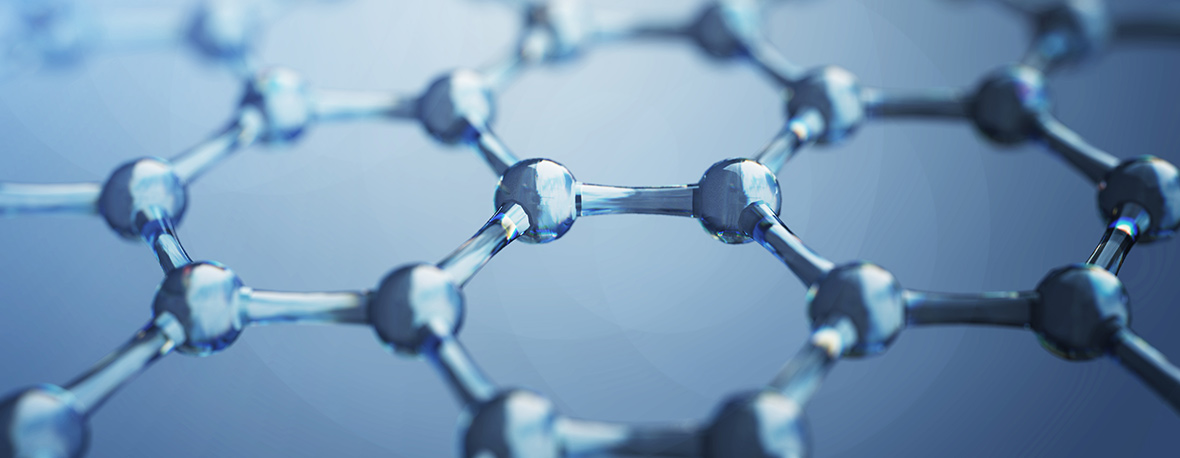
Carbon nanotubes (CNTs) are tiny tubular carbon fibers at the nanosize level (1 nm = 1/1,000,000 of a millimeter). Carbon is very light compared with metal, yet has greater conductivity, thermal conductivity, hardness, and flexibility than metal. Thus, development has been carried out in this area with the expectation of industrial applications in all types of fields.
Nevertheless, nanosized materials have strong molecular attraction, and because they are extremely fine fibers, they easily become entangled and ends up strongly aggregating like cocoon balls. In order to elicit outstanding fetures of CNT, it is necessary to isolate and disperse them, and there is a high technical hurdle.
We have succeeded in developing our own unique technologies for disentangling aggregated CNT. These utilize the outstanding characteristics of CNT and our own unique dispersion technologies. We have succeeded in achieving extensive commercialization in this regard and have been sending out various products in Japan and to overseas.
Our polymer-based coatings achieve world-class performance. Not only are they already patented globally, but they are also the only CNT-related coatings standardized under JIS (Japanese Industrial Standards). They are increasingly used as surface treatments for chemical plants and power infrastructure in harsh coastal and offshore environments, as well as for specialized vehicles, ships, and marine observation equipment. By dramatically extending the lifespan of these structures, they contribute to global energy and resource conservation.
We are carrying out research & development to boost the performance of fuel cells by utilizing the unique structures of CNT.
Aiming to reduce "the volume of catalyst precious metals", the cost issue of fuel cells, and to improve "catalyst durability", which directly affects power generation performance, we will contribute to the market expansion of fuel cells, the next-generation energy, by utilizing our unique CNT modifications.
We enhance the mechanical performance of Carbon Fiber Reinforced Plastics (CFRP). Using our proprietary technology, CNTs are well dispersed within the CFRP, achieving approximately 30% improvement in mechanical properties compared to conventional materials. This patented technology was developed jointly with the Japan Aerospace Exploration Agency (JAXA).
Our composites have demonstrated about twice the vibration fatigue resistance compared to conventional resins. These materials are increasingly used in sports equipment such as bicycles, golf clubs, tennis rackets, and fishing rods. Additionally, when used as an additive in speaker diaphragms, they successfully improve both sound velocity and damping—a combination of typically opposing properties—making them suitable for automobiles, TVs, and home speakers.
Looking ahead, we aim to develop even higher-strength, higher-elasticity composites. By enabling lighter, thinner, shorter, and smaller components, we seek to reduce environmental impact and contribute to the energy sector and high-speed transportation infrastructure.
This product makes use of the conductivity and unique crystal structure of our CSCNT, and it can be applied as a conductive agent for lithium-ion secondary batteries (LIB). Recently, we have succeeded in the development of a next-generation pure-silicon negative-electrode LIB through the addition of CSCNT. We are already engaging in research & development for positive electrodes, and intend to contribute to the realization of a new generation of LIB that will have revolutionary performance.
Inquiries: Nanotechnology Development Department, tel.: 044-322-5595
We provide custom dispersion services in small to medium quantities—from a few hundred grams to several tens of kilograms—tailored to customer requirements using various mixing equipment.
1. Dispersions
・We accept small-lot trials from several hundred grams to a few kilograms for dispersions in various solvents. Please consult us regarding solvent types.
2. Thermoplastic Resin Compounds and Masterbatches
・Small-lot trials from around 1 kg to several tens of kilograms are available for multiple varieties and conditions. Please consult us regarding resin types.
・Allows the addition of minute amounts of bulky fine powders such as CNTs.
・We can produce test specimens and perform evaluations according to your requirements.
・Equipment specifications: screw diameter φ18 mm, L/D = 50, maximum rotation 1500 rpm, maximum temperature 450 °C, allowable screw drive power 15 kW.
3. Thermosetting Resin Masterbatches
・Small-lot trials from several hundred grams to several tens of kilograms for high-concentration thermosetting resin dispersions.
・Can be used with intermediate materials such as RF or PPG, and is expected to improve various mechanical properties.
Using universal testing machines and various evaluation equipment, we analyze and assess key properties such as mechanical performance (strength, elastic modulus) and electrical characteristics (conductivity).
Upon request, we can prepare evaluation reports to support your research and development activities.
Using state-of-the-art microscopes and analytical instruments, we perform detailed observation and analysis of material surfaces and cross-sectional structures at scales ranging from nanometers and microns to millimeters. Combined with elemental analysis, this allows us to fully characterize the material.
Please contact us for inquiries.
We offer organic semiconductor materials for organic electronics. Please refer to the catalog below.
Inquiries: Nanotechnology Development Department, tel.: 044-322-5595, e-mail.: nano@gsi.co.jp


